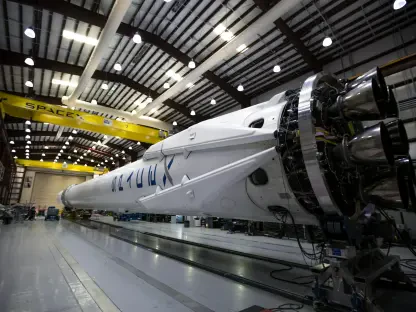In an era where space has become a critical frontier for both national security and commercial enterprise, the vulnerability of satellite systems to cyber threats poses a significant challenge that demands urgent attention from all stakeholders involved. With commercial satellites increasingly intertwined with military operations, the lines between civilian and military targets have blurred, exposing private operators to unprecedented risks. High-profile incidents, such as the cyberattacks on satellite networks during geopolitical conflicts, have underscored the fragility of these systems. As space infrastructure becomes a backbone for global communication, navigation, and defense, questions arise about the responsibilities of governments to protect these assets. This discussion delves into the legal and ethical obligations of states to share threat intelligence with commercial satellite operators, exploring how international law, national policies, and market dynamics intersect in an age of orbital conflict.
Legal and Ethical Obligations of States
Foundations of State Responsibility
The obligation of states to safeguard commercial satellite operators from cyber threats is deeply rooted in international legal frameworks, particularly under treaties governing outer space activities. These agreements emphasize that states bear a responsibility to prevent harm to entities operating in space, including private companies. This duty extends to sharing credible threat intelligence, a principle reinforced by national policies in several countries. For instance, directives in the United States explicitly caution against interference with space systems, highlighting a commitment to protect both government and commercial infrastructure. The rationale is clear: as space becomes a contested domain, failing to warn operators of potential cyberattacks could result in catastrophic disruptions, affecting not only individual companies but also global security and economic stability. This legal foundation sets a precedent for proactive government involvement, urging states to prioritize the dissemination of actionable information to mitigate risks before they materialize into tangible threats.
Challenges in Equitable Information Sharing
Ensuring that all commercial satellite operators receive timely and relevant threat intelligence presents a significant hurdle for governments. While certain companies engaged in public-private partnerships or military programs often benefit from access to high-quality data from agencies like national cybersecurity centers, smaller or independent operators may be left vulnerable. This disparity raises ethical concerns about fairness and the potential for unequal protection under the law. The complexity intensifies when considering the diverse nature of cyber threats, which can range from state-sponsored attacks to rogue hackers targeting critical infrastructure. Bridging this gap requires innovative mechanisms, such as licensing frameworks that could formalize channels for intelligence sharing across the industry. Without such measures, the risk of cyberattacks could deter investment in the space sector, stifling growth and innovation at a time when reliance on satellite technology is expanding across multiple domains, from telecommunications to defense operations.
Practical Implications and Future Directions
Impact on Space Market Stability
The intersection of cyber threats and commercial space operations has profound implications for market confidence and stability. Investors are increasingly attuned to the risks associated with space infrastructure, particularly as incidents of cyber interference become more frequent. When states fail to provide adequate warnings or support, the resulting uncertainty can dampen enthusiasm for funding new ventures or expanding existing ones. Conversely, proactive government action to share threat intelligence and mitigate risks can serve as a stabilizing force, reassuring stakeholders that their investments are protected. Licensing arrangements, for example, could offer a structured way to integrate operators into national security frameworks, providing them with access to critical information while fostering a sense of shared responsibility. By addressing these vulnerabilities, states can cultivate a more resilient space economy, ensuring that the industry continues to thrive even amidst growing geopolitical tensions and technological challenges.
Evolving International Cooperation
Looking ahead, the need for robust international cooperation to address cyber threats in space cannot be overstated. The unique nature of cyber-enabled counterspace operations demands that legal frameworks evolve to keep pace with technological advancements and emerging risks. Collaborative efforts among nations could lead to standardized protocols for threat intelligence sharing, ensuring that no operator is left unprotected due to jurisdictional limitations. Additionally, fostering dialogue between governments, military entities, and commercial stakeholders will be crucial in balancing the diverse interests at play. The development of global norms around state responsibility in space could pave the way for more equitable protection mechanisms, reducing the likelihood of conflict escalation in orbit. Reflecting on past efforts, it has become evident that isolated actions by individual states often fall short of addressing the transnational nature of cyber threats, underscoring the importance of unified strategies that prioritize collective security and stability in the space domain.









